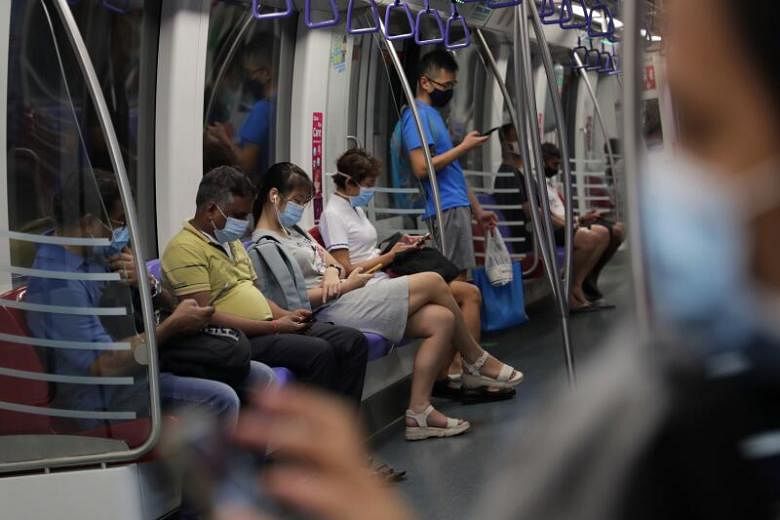SINGAPORE - Singapore will not be using a contact tracing system jointly developed by tech giants Apple and Google.
In a Facebook post on Monday (June 15), Minister-in-charge of the Smart Nation Initiative Vivian Balakrishnan said: "We decided that it would be less effective in our local context."
The Apple-Google software, called Exposure Notifications System, uses wireless Bluetooth technology to trace the close contacts of Covid-19 patients while giving users control over whether to share their data with health authorities.
"Several people have asked why we are not using the Exposure Notifications System created by Apple and Google for contact tracing. It is a good and innovative system designed by some of the brightest minds in Silicon Valley," said Dr Balakrishnan, who is also Foreign Minister, in his post on Monday (June 15).
But "after careful consideration", the Government decided against using the system.
"There would be no way to identify how, when and whom the person was infected by or passed the infection to. The 'graph' would not be available to the contact tracers," Dr Balakrishnan wrote.
His post comes hours after former non-constituency MP Gerald Giam questioned the Government's multimillion-dollar plan to roll out a wearable device for contract tracing, known as the TraceTogether Token, instead of working with Apple and Google.
In his blog post on Sunday (June 14), Mr Giam wrote: "The TraceTogether app should be re-programmed to adopt Apple and Google's Exposure Notifications system. This will enable the app to run effectively on all smartphones, maximise adoption, protect privacy, enable cross-border interoperability and, most importantly, become a real weapon in our battle against Covid-19."
Mr Giam, who is a member of the opposition Workers' Party, added: "The wearable device then only needs to be issued to the 9 per cent of residents who don't own a smartphone, saving taxpayers over $100 million."
Locally-based electronics firm PCI has won a $6 million tender to supply the first 300,000 TraceTogether Token devices. This works out to $20 per token, which will be issued from later this month (June).
Rolling out the device to all 5.7 million residents here would potentially cost $100 million.
Developers of TraceTogether had said in April they would work with Apple and Google to allow "cross-border interoperability".
Dr Balakrishan's post on Monday, which was opposed to the initial stance that the TraceTogether developers took, was the first time since then that any official comments have been made about the integration of the Apple-Google technology.
Dr Balakrishnan said on Monday that not everyone can afford a smartphone, and not all smartphones would work well with contact tracing apps.
"In order to extend effective protection to as many people as possible, we had to consider tokens that would be simpler, more effective, more convenient and cheaper than phones. These tokens would interoperate with the apps on the smartphones," he said.
"By increasing the overall pool of participants, everybody would be safer. Every user of the app or token would benefit by being informed as early as possible if we have been exposed."
He added that the protection from contact tracing has to be made available as soon as possible and to as many people as possible to ensure no one is excluded.












